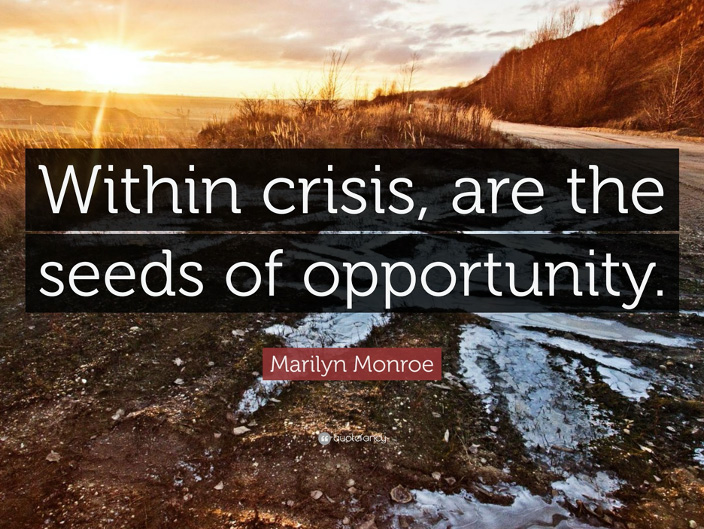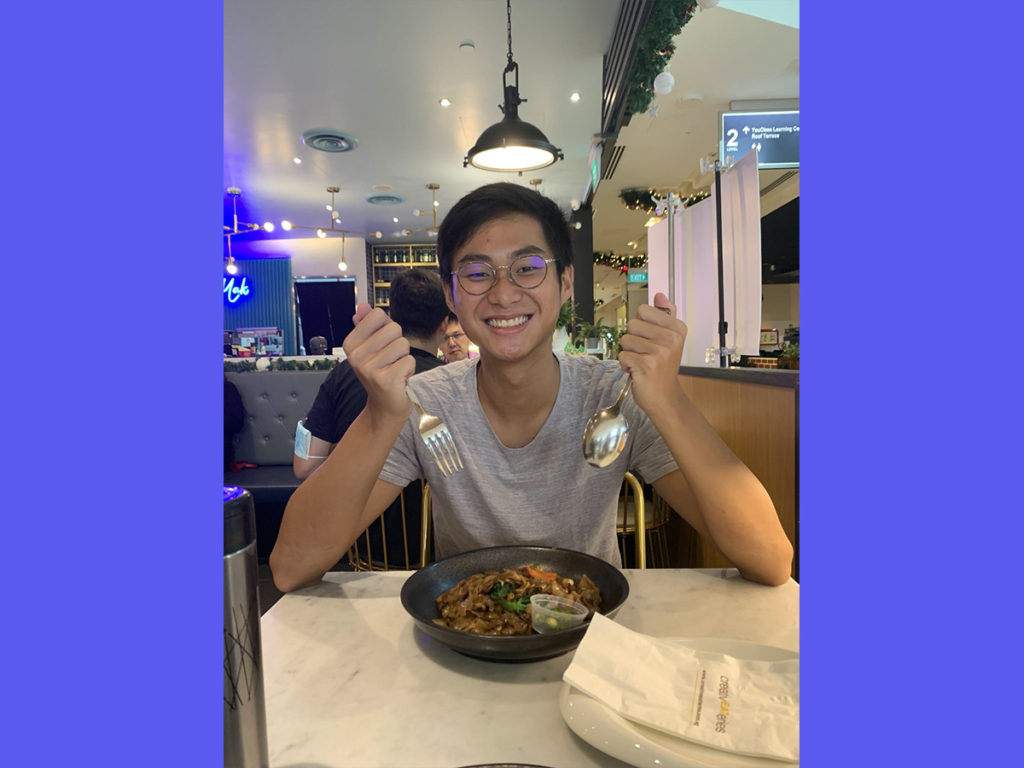“Opportunities in the midst of a global health crisis”
Jeremy Lim
High School student
Singapore
A pervasive virus that has claimed millions of lives, crippled the economy worldwide, initiated national lockdowns and led to widespread fear, panic and disorder. Ever since the World Health Organization announced the outbreak of the novel coronavirus (Covid-19) as a pandemic on March 11, 2020, Covid-19 has started to represent different things – hopelessness, despair and desperation. However, crisis moments also present opportunities. Even in the midst of such chaos and disruption, we have encountered many unprecedented changes, a reformed way of thinking and tackling difficulties, a move towards embracing technology in daily life and a revived understanding for previously understated groups of society.
First and foremost, Covid-19 has changed the dynamics of the previously rigid school system through the implementation of online lectures and classes. Not only has this brought about a greater need for students to exercise self-discipline in learning, it has also allowed the school to move towards an alternative form of teaching, which would not have been implemented if not for Covid. However, with the shift from lessons in real life to online lessons, students have also been deprived of the social engagement that is necessary for us to develop social and communication skills. Especially during the first year of Junior College, where new classes are formed and we get to know new classmates, Covid was a key dividing force that polarized many classes. This was exacerbated by the Circuit Breaker that was implemented, which was essentially a national lockdown where classes had fully moved to online classes and students had no way of interaction with each other outside of class. In order to adapt to the sudden change in lessons as well as to foster a greater bond and class spirit, students started to become more independent in their learning and resourceful and innovative when it comes to ways to interact with others online. After factoring out the commuting time that students normally use to go to and from school, students have a surplus of time on their hands. This has allowed them to use this time productively by concentrating on their studies as well as by organizing online games with their entire class. This has thought students to be more steadfast and responsible in their learning and to adapt to the situation and think of new creative ideas to tackle the issue at hand.
In fact, Covid-19 has taught students to bring their experiences from school to the wider community to help others who have been heavily affected by the pandemic. Students made use of virtual platforms to help others in need. Many service-based projects have been set up to help children from underprivileged background via online services, where teachers and students are found via online registration and matched accordingly. This has allowed these students gain access to online tuition and even gratuitous music lessons to gain an equal footing to their peers. From their experiences now, students are gaining skills and thinking of new methods to move towards the future, where efficiency will become the priority and more services will move towards the virtual platform.
In addition, this period has also allowed all Singaporeans to gain a greater understanding of the hardships faced by foreign migrant workers in Singapore. Previously, little attention was placed on foreign migrant workers such as construction workers regarding their standard of living and their quality of life. However, the mass outbreak of the virus attributed to the cramped living quarters of foreign workers has shone a light on the plight of foreign workers. Even when safe distancing measures were implemented throughout the nation, foreign workers were simply unable to abide by these precautionary rules due to the sheer number of people sharing facilities, citing 180 men sharing a communal toilet. To make matters worse, workers were kept under quarantine and unable to send money back to their families overseas. Other workers did not receive their usual salary due to the declining economic situation. As a result, the cumulation of helplessness and anxiety led to the deterioration of the mental health of many workers, leading some to commit self-harm and even attempts at suicide. While this was an issue that would be more appropriately handled by relevant authorities who could improve the living conditions of foreign workers, students did not shy away from the opportunity to help. Donation drives were held in schools for foreign workers who have been most hard hit by the pandemic. Items such as canned food, books and used mobile phones were collected and donated in hopes that it could be of use to the foreign workers. Moreover, when hand sanitizers, wet tissues and other hygiene products were given out to all students, booths were put up to encourage students to donate these items if they were not going to make use of them. In conclusion, while Covid-19 has led to many negative outcomes, be it social, economic or political, it has also taught us to adapt to rapidly changing environments and make full use of what we have to adjust and create a new norm. Even in a global health crisis, there are still opportunities that we should take hold of and utilize fully to make the most of the situation.
蔓延性のウィルスは何百万人もの命を奪い、世界中の経済を麻痺させ、国家の封鎖を開始しました。そして、広い範囲で恐怖、パニック、無秩序をもたらしました。世界保健機関(WHO)が2020年3月11日に新型コロナウイルス(Covid-19)の発生をパンデミックとして発表して以来、Covid-19は、絶望、落胆、自暴自棄というような、ウィルスの定義とは異なるものを表すようになりました。しかし、危機的な瞬間はまた、好機でもあるのです。このような混沌と混乱の中にあっても、私たちは多くの前例のない変化に遭遇してきました。それは、考え方や難題への対応法における変革、日常生活に技術を取り入れる動きなどです。そして以前は軽視されていた社会層の人々に対しても、見方が変わってきています。
何よりもまず第一に、Covid-19はオンライン講義や授業の実施を通じて、それまでの硬直した学校の体制を変えました。学生の学習に対する自主性の必要性を高めただけではなく、学校を従来の教授法から代替形態へと移行させました。このような変化は、Covid-19がなければ起こり得なかったことです。しかし、対面授業からオンライン授業への移行に伴い、学生は社会性やコミュニケーション能力を身につけるために必要な社会参加の機会を奪われることにもなってしまいました。特に、新しいクラスが編成され、クラスメイトと知り合う短大1年生の時期に、コロナウィルスは分断と麻痺を生じさせました。これを悪化させたのが、「サーキットブレーカー」でした。サーキットブレーカーとは全国規模でのロックダウンのことです。これにより、全ての授業はオンライン化し、学生たちは授業以外でお互いに交流をする手段がありませんでした。突然の授業形態の変更に適応し、クラスの絆を深め、まとまりを育むために、学生はより自立した学習を行うようになりました。そして、オンラインで他の学生と交流する際には、工夫をこらし、刷新的な方法を用いていました。通常の通学時間を考慮すると、時間的余裕が生まれました。このことによって、学生たちは勉学に集中するだけではなく、クラス全体でオンラインゲームをするなどの活動を通じて、時間を生産的に使えるようになりました。これにより、学生はより堅実で自律的な学習ができるようになりました。そして、状況に適応して問題に取り組むための新しくて、創造的な考えを思いつくこともできるようになりました。
実際、Covid-19は、パンデミックによって大きな影響を受けた人々を支援するために、学校で得た経験を、より広い地域社会で活用するということを学生に教えてくれました。学生たちは、支援が必要な人たちのために、仮想プラットフォームを利用しました。多くの奉仕型プロジェクトが、オンラインを介して恵まれない背景を持つ子供たちを支援するために設立されました。このプロジェクトでは、子供たちがオンライン授業に参加できます。そして、他の友達と同等の教育を得るために、無償の音楽の授業ですら受けられるのです。このような経験から、学生たちは技術を得て、未来へ進んでいくための新しい方法を思いつくのです。そして、未来の世界においては、効率性が最優先事項となり、より多くのサービスが仮想プラットフォームをへと移行するでしょう。
また、ロックダウンの期間は、シンガポールで働く外国人出稼ぎ労働者が直面している苦難について、シンガポール人全員が理解を深めることができました。これまで、建設労働者などの外国人出稼ぎ労働者の生活水準や生活の質については、ほとんど注目されていませんでした。しかし、外国人労働者の劣悪な住環境に起因するウイルスの蔓延は、外国人労働者の窮状に光を当てることになりました。全国各地で安全な社会的距離を取るような施策が取られていた時ですら、外国人労働者たちはこうした予防措置を単に守ることができなかったのです。それは、例えば、一つのお手洗いを180人もの大人数で共有しなければならないような、彼らの置かれている環境に原因があったからです。さらに悪いことに、労働者は隔離され、海外の家族に仕送りができませんでした。 また、経済状況が悪化しているため、給料をもらえない労働者もいました。その結果、無力感や不安が積み重なって精神状態が悪化し、自傷行為や自殺未遂をする人も出てきました。この問題は、外国人労働者の生活環境を改善する関係当局が適切に対処すべき問題ではありますが、学生たちも支援に乗り出しました。パンデミックの被害を大きく受けた外国人労働者のために、学校で募金活動が行われました。缶詰や本、中古の携帯電話などが集められ、外国人労働者の役に立つことを願って寄付が行われました。また、全学生に手指消毒器やウェットティッシュなどの衛生用品が配られた際には、使わない場合に寄付を呼び掛けるためのコーナーが設置されました。

結論から言うと、Covid-19は社会的、経済的、政治的に、多くの悪い結果をもたらしました。その一方で、急速に変化する環境に適応し、今あるものを最大限に活用して新しい規範を作ることを教えてくれました。世界的な健康危機の中にあっても、状況を最大限に活用するために、私たちが十分に活用すべき好機はまだあるのです。








